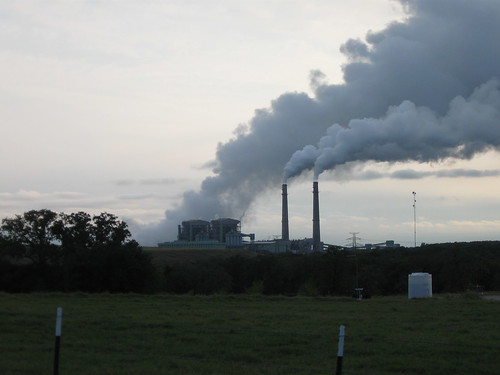
The Capital Power Plant on Capitol Hill
Tomorrow, Thursday June 10, Sen. Lisa Murkowski’s (R-Alaska) “Disapproval Resolution” will be voted on in the Senate. If passed, it would overturn the EPA’s “endangerment finding”, undermining the Clean Air Act- which by the way is the most successful piece of environmental legislation- and stripping the EPA of its right to regulate Greenhouse Gas emissions.
Congress has the audacity to claim that global warming is their domain, not the EPA’s. If this is true, it’s baffling that the EPA has been taking action to curb greenhouse gas emissions while all the Senate has done is sit on greenhouse gas legislation.
Murkowski’s resolution, because it will be voted on under the Congressional Review Act, only needs 51 votes to pass the Senate and move on to the House. Murkowski has already locked in 40 co-sponsors and is not revealing how many additional votes she has secured. But while she might get her resolution through the Senate without too much sweat, getting enough votes in the House and the approval of the White House- Obama has already threatened to veto it- promises to be more of a challenge.
This is not the only bill that those of us in favor letting the EPA protect our clean air need to keep our eyes on. Sen. Jay Rockefeller (D-W.Va.) will try to push his own bill, which if passed would block the EPA from regulating the greenhouse gas emissions from stationary sources such as power plants and oil refineries for two years, through the Senate. He needs 60 votes and is less confident about its getting through the Senate, but either way, he has said, he will vote in favor of Murkowski’s resolution.
Russell Train, former EPA chief wrote a letter urging Republic Senators Reid and McConnell to vote against Murkowski’s resolution:
I am writing as former EPA Administrator under the Nixon and Ford Administrations to urge the Senate to oppose any legislative proposals that would undermine the Clean Air Act. In particular, I ask the Senate to reject the Resolution of Disapproval offered by Senator Lisa Murkowski of Alaska (S.J.Res.26), which would prevent the EPA from acting on that agency’s endangerment finding and the cause or contribute findings for greenhouse gases.
For 40 years, the Clean Air Act has protected the health and welfare of the American people, saving hundreds of thousands of lives while vastly improving the quality of the air we breathe. The economic benefits provided by the Act have exceeded its costs by between 10 to 100 times over.
Despite the law’s impressive track record, S.J.Res.26 would rollback Clean Air Act protections and prevent the EPA from regulating greenhouse gas emissions, notwithstanding the agency’s scientific determination that these pollutants endanger human health and welfare. If passed, this resolution would fundamentally undermine the Clean Air Act, overturning science in favor of political considerations. (more…)
Read Full Post »

 The
The









